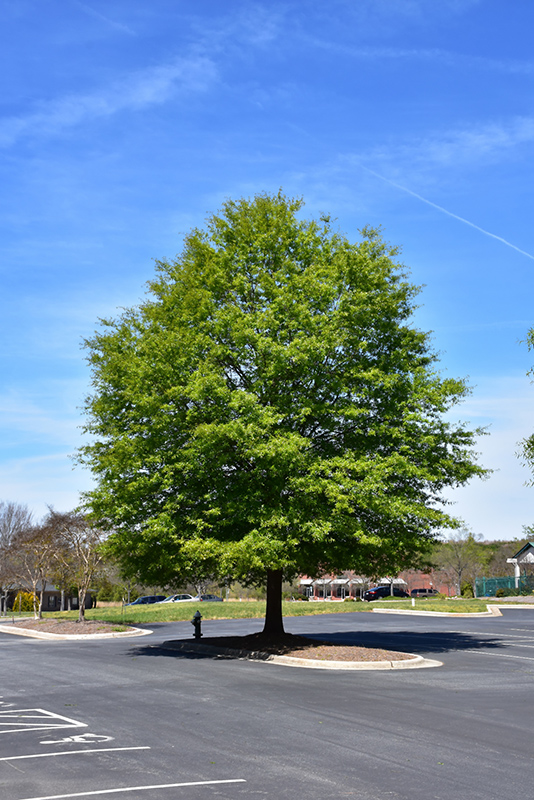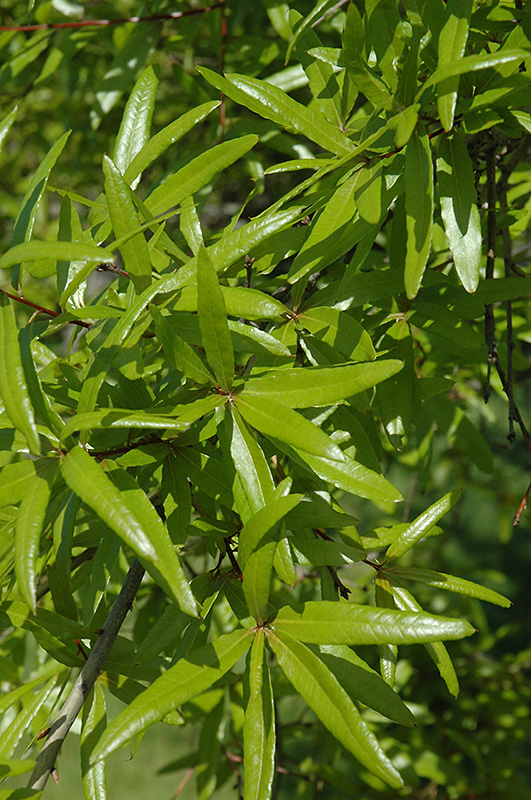* This is a "special order" plant - contact store for details
Height: 50 feet
Spread: 40 feet
Sunlight:
![]()
Hardiness Zone: 6a
Description:
An interesting oak with unusual thin, long leaves, more like a willow (hence the name); this becomes a massive, wide-spreading shade tree, only for larger landscapes, also makes a great street tree; tough and adaptable to various conditions
Ornamental Features
Willow Oak has dark green deciduous foliage on a tree with a pyramidal habit of growth. The narrow leaves turn coppery-bronze in fall. However, the fruit can be messy in the landscape and may require occasional clean-up.
Landscape Attributes
Willow Oak is a dense deciduous tree with a distinctive and refined pyramidal form. Its relatively fine texture sets it apart from other landscape plants with less refined foliage.
This tree will require occasional maintenance and upkeep, and is best pruned in late winter once the threat of extreme cold has passed. It is a good choice for attracting squirrels to your yard. Gardeners should be aware of the following characteristic(s) that may warrant special consideration;
- Messy
Willow Oak is recommended for the following landscape applications;
- Shade
Planting & Growing
Willow Oak will grow to be about 50 feet tall at maturity, with a spread of 40 feet. It has a high canopy with a typical clearance of 7 feet from the ground, and should not be planted underneath power lines. As it matures, the lower branches of this tree can be strategically removed to create a high enough canopy to support unobstructed human traffic underneath. It grows at a medium rate, and under ideal conditions can be expected to live to a ripe old age of 150 years or more; think of this as a heritage tree for future generations!
This tree should only be grown in full sunlight. It is very adaptable to both dry and moist locations, and should do just fine under average home landscape conditions. It is not particular as to soil type or pH. It is somewhat tolerant of urban pollution. This species is native to parts of North America.
* This is a "special order" plant - contact store for details






